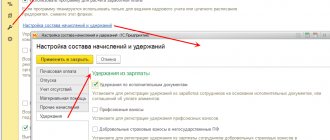According to the law, a citizen has the right to stop working at any time. Dismissal at will is provided for in Article 77, paragraph 3, part 1 of the Labor Code of the Russian Federation, but the procedure requires compliance with a number of rules. The employee is obliged to notify the employer in advance of the upcoming dismissal. However, the parties may agree and not comply with the established rules. We will talk further about how to proceed to quit, the rules for entering information into the work book, as well as the liability that an employer who violates the rights of an employee may be held liable for.
How to terminate a contract with an employee
If a person, of his own free will, decides to stop working in an organization, the provisions of Article 77 of the Labor Code of the Russian Federation and Article 80 come into force. These reflect the rules that must be followed without fail.
Keep the following points in mind:
- An employee may terminate the employment relationship if he notifies the employer at least 14 days before the expected date of departure by writing a statement. In some cases, the notification period may change if the relevant rules are enshrined in the current legislation.
- If the dismissal occurs for reasons beyond the employee’s control or is associated with unlawful actions of the employer, the employee independently decides how many days before leaving he writes a statement.
- At the time of completion of the activity, a full financial settlement with the employee occurs. Additionally, he is provided with a work book and other documents reflected in the legislation.
- A person has the right to withdraw a resignation letter before the end of the service period, with the exception of situations where a new specialist has already been invited to the position.
- If the employee no longer wishes to terminate the contract, the agreement continues to apply.
Where to defend labor rights
If during the dismissal procedure or in any other case that arose during the employment relationship, your rights were violated, then you need to defend them in one of the following ways:
- Contacting the Labor Rights Protection Inspectorate.
- Statement of claim to court.
- Contacting the prosecutor's office.
A citizen of the Russian Federation whose rights have been violated may appeal simultaneously to all competent authorities. Administrative punishment is provided for the guilty person. But the citizen himself does not have the right to initiate such a case through the court. This can only be done by either the prosecutor's office or the labor inspectorate. To do this, you need to send a complaint to these structures.
In parallel, the employee has the right to file a lawsuit in order to receive compensation for moral damage or any other payment from the employer, if provided by law, because administrative sanctions do not provide for this. All fines issued by the prosecutor's office will go to the state. Therefore, it is better to contact the regulatory authorities in order to bring the offender to justice and go to court for moral or other payments.
Stages of voluntary dismissal
If an employee independently wants to stop working for the company, this is the simplest situation. It is regulated by the Labor Code, or Labor Code. Usually, the parties independently agree on all the nuances of terminating legal relations, and conflicts do not arise.
It is important! Sometimes unscrupulous employers require you to write a statement of your own free will, while dismissing you for other reasons. In this situation, you can challenge the legality of the dismissal by going to court.
Today, experts have developed a clear scheme that must be followed in order to resign at your own request.
Video
To complete the procedure you will need to:
- Prepare an application and submit it to the employer. Please note that the date of dismissal is considered the final day of employment in the organization.
- Wait until the working period ends. The standard period is two weeks. If a person holding a managerial position is dismissed, the period is extended to 1 month. At the mutual request of the parties, the working period may be terminated earlier. The employer cannot insist that the period be reduced without the employee's wishes.
- A dismissal order is issued. The corresponding document is drawn up on the final day of work. The documents are provided to the employee for review. If necessary, the employee can obtain a copy of the order.
- The employee is provided with a salary certificate for the last two years. If issuing a document at the time of dismissal is not possible, it can be provided within 3 days from the receipt of the relevant application.
- The employer notifies the Pension Fund of dismissal.
- A record of termination of employment is made in the employee’s personal card.
- Draw up a settlement note. The document records information about the employee, information about termination of activity, information about accruals and payments received upon dismissal.
- Perform a full calculation. All funds must be provided by the last day. If the person was not present at work at this moment, the money is transferred the next day after receiving the corresponding request.
- An appropriate entry is made in the employee’s work book and the documents are issued to the owner.
- Provide a copy of the documentation that was presented at the time of hiring.
Video
Preparing a resignation letter
Clause 3, Part 1, Article 77 of the Labor Code of the Russian Federation reflects all the features of voluntary dismissal. However, information about the application form is not provided here. The form of the document is also absent in other regulatory legal acts. Therefore, the employer has no right to reject the application due to non-compliance with the established form. However, the HR department usually has ready-made samples on the basis of which the employee must prepare his application.
Additionally, the form contains a list of mandatory information:
- Full name and position of the head of the company;
- the reason for termination of work - it is enough to indicate the presence of your own desire;
- reference to the norms of current legislation - Article 80 of the Labor Code of the Russian Federation;
- last day of work;
- Full name of the person terminating the employment contract;
- date, signature and its decoding.
Results
In order to avoid further disputes between the employer and employees, it is necessary to follow the procedure for dismissal at will.
Ignoring by an employee of a mandatory period of work is often considered a violation of labor discipline, and then the contract can be terminated on completely different grounds. You can find more complete information on the topic in ConsultantPlus. Free trial access to the system for 2 days.
Preparation of an order
In order to formalize the dismissal of an employee under clause 3, part 1, article 77 of the Labor Code of the Russian Federation, the employer is obliged to draw up an order on the day the citizen ceases to work in the selected organization. Once the document is signed, the employee is considered dismissed.
Video
There are several forms of order. So, if one employee quits, a T8 document is drawn up. When you need to fire several employees at once, use form T-8a. The legislation does not reflect that it is necessary to use the above format.
It is enough that the document contains mandatory information, the list of which includes the following information:
- information about the organization;
- date of preparation of the order and its registration number;
- information about the contract on the basis of which the person was hired;
- moment of dismissal;
- information about the employee;
- grounds for termination of an employment contract;
- documentary evidence of the employee’s initiative to terminate the agreement at his own request;
- signature of the employee and employer.
Article 77. General grounds for termination of an employment contract
Ruling of the Supreme Court of the Russian Federation dated November 14, 2007 N 83-G07-7 Otherwise, the employer, after receiving a medical report on existing contraindications to performing the assigned work, will be forced to terminate the employment contract in accordance with clause 11, part 1, art. Labor Code of the Russian Federation for violation of the rules for concluding an employment contract established by this Code or other federal law, if this violation excludes the possibility of continuing work (paragraph 3 of Article 84 of this Code), or transferring the employee to another job available to the employer that is not contraindicated to the employee due to his condition health (Part 1 of Article of the Labor Code of the Russian Federation).
Review of judicial practice, Appendix to the letter of the FSS of the Russian Federation dated July 11, 2005 N 02-18/07-6203
As follows from the case materials, Bulava A.A. from 07/01/1999 he worked as a leading specialist in branch No. 1 of the Fund’s branch. 07/22/2004 Bulava A.A. warned the employer in writing about the termination of the employment contract from 08/05/2004 at his own request. On 08/03/2004, the plaintiff, as a change and in addition to the application dated 07/22/2004, submitted to the employer a statement that he asked to consider 08/12/2004 as the last working day, indicating that 08/12/2004 was the last day of the vacation due to him. By order of the Fund branch manager N 325-K dated 08/02/2004 Bulava A.A. dismissed on 08/05/2004 under paragraph 3 of article of the Labor Code of the Russian Federation (hereinafter referred to as the Labor Code) at his own request. The plaintiff was familiarized with the dismissal order on August 5, 2004.
Determination of the Supreme Court of the Russian Federation dated 06.06.2007 N 83-G07-2
Deputy of the Bryansk Regional Duma P. appealed to the Bryansk Regional Court with an application to invalidate this provision from the moment of adoption, citing its contradiction with part 1 and part 9 of the article, part 1 and part 4 of the article, part 2 of the article, paragraph 14 of the article of the Russian Labor Code Federation.
Determination of the Supreme Court of the Russian Federation dated April 18, 2003 N 3-G03-5
The guarantees specified in Art. 24 of the contested Law are generally consistent with the principles of joint rule-making of the Russian Federation and the constituent entities of the Russian Federation, allowing the constituent entities of the Russian Federation to adopt, on subjects of joint jurisdiction, their own normative legal acts on issues, including those not regulated in the relevant federal laws, and the provisions of Art. . Art. 5, 18 of the Federal Law “On the General Principles of the Organization of Local Self-Government in the Russian Federation” dated August 28, 1995 N 154-FZ with subsequent amendments and additions, Art. Art. , , 164, 165, 172 of the Labor Code of the Russian Federation, providing for the creation of necessary conditions for deputies of representative bodies of local self-government for the unhindered and effective exercise of powers by establishing for them a special status by the Constitution of the Russian Federation, federal law, and laws of the constituent entities of the Russian Federation, which includes additional labor guarantees that protect deputies from illegal dismissal from work and unjustified changes in their essential working conditions. Since there is no federal law on the status of deputies of representative bodies of local self-government in the Russian Federation, taking into account the above circumstances, the Komi Republic justifiably adopted its own regulatory legal act containing rules on the status of deputies of councils of municipal formations of the Komi Republic, which provide for a higher labor standard than the current labor legislation level of protection of the labor rights of these deputies. At the same time, established in Art. 24 of the Law of the Komi Republic “On Local Self-Government in the Komi Republic”, measures to protect the labor rights of deputies of representative bodies of local self-government do not in themselves contradict the basic principles of labor legislation, since do not exclude the employer’s right to apply the provisions of Art. Art. , , Labor Code of the Russian Federation, with the consent of the relevant representative body of local self-government, and from the point of view of the right of citizens to exercise local self-government through their elected bodies, are proportionate and justified.
Determination of the Supreme Court of the Russian Federation dated March 27, 2003 N 46-G03-5
The prosecutor of the Samara region filed a petition with the court to declare that clause 1 of Art. 24 of the Law of the Samara Region dated July 16, 1998 N 16-GD “On Municipal Service in the Samara Region”, adopted by the Samara Provincial Duma on June 25, 1998, in the part defining the basis for termination of municipal service as the expiration of the contract, referring to the fact that in this Part of this norm contradicts Part 4 of Art. Labor Code of the Russian Federation, which provides that if neither party has requested termination of a fixed-term employment contract due to the expiration of its term, and the employee continues to work after the expiration of the employment contract, the employment contract is considered concluded for an indefinite period and clause 2 Art. The Labor Code of the Russian Federation, which provides that the basis for termination of an employment contract is the expiration of the term of the employment contract (clause 2 of Article 58), except in cases where the employment relationship actually continues and neither party has demanded its termination.
Review of judicial practice of the Supreme Court of the Russian Federation dated May 28, 2008
Clause 11 of Part 1 of Art. Labor Code of the Russian Federation, is not deprived of the right to receive severance pay under the conditions provided for in the employment agreement. When resolving the dispute, the court found that, on the basis of an order dated May 5, 2003, plaintiff S. was appointed chief accountant of the organization, and on June 10, 2003, an employment contract was concluded with her in writing, in accordance with section seven of which, in case of forced termination of work through no fault of the employee, as well as in case of early termination of an employment contract on the initiative of the administration, during reorganization or liquidation of the enterprise, compensation in the amount of at least two annual actual wages (for the past period) is paid at the expense of the enterprise.
Determination of the Supreme Court of the Russian Federation dated May 14, 2008 N 63-G08-1
The article of the Labor Code of the Russian Federation determines that an employment contract may be terminated on the grounds provided for by this Code and other federal laws. Federal legislation does not provide for grounds for termination of a service contract (employment contract), established by the contested norm, as the court correctly indicated in its decision.
Determination of the Constitutional Court of the Russian Federation dated January 29, 2009 N 24-О-О
In his complaint to the Constitutional Court of the Russian Federation, T.V. Ivanova challenges the constitutionality of parts five and six of Articles of the Labor Code of the Russian Federation, according to which a change in the jurisdiction (subordination) of an organization or its reorganization cannot be grounds for termination of employment contracts with employees of the organization, and if the employee refuses to continue working in these cases, the employment contract is terminated in in accordance with paragraph 6 of article of the Labor Code of the Russian Federation. According to the applicant, these legal provisions violate the principle of freedom of labor, deprive the employee of established guarantees and compensations and contradict Articles 2, 7, 15 (parts 1, 2 and 3), 17 (parts 1 and 3), 18, 19, 21 (part 1 ), 24 (part 2), 29 (part 4), 37 (parts 1, 2, 3 and 4), 45, 46 (parts 1 and 2), 52, 55 and 57 of the Constitution of the Russian Federation.
“Review of legislation and judicial practice of the Supreme Court of the Russian Federation for the third quarter of 2010”
D. filed a lawsuit against the Oyna Mining Artel for the collection of arrears of wages, compensation for unused vacation upon dismissal, compensation for delayed payment of wages and compensation for unused vacations. In support of her claims, the plaintiff indicated that she worked in the artel from October 13, 1997 to March 27, 2009. During this period, she was not provided with paid leave. On December 19, 2008, she contacted her employer with an application for paid leave for 2007-2008 with subsequent dismissal. By order of the head of the organization dated December 19, 2008, D. was dismissed on March 27, 2009 at her own request on the basis of clause 3 of Art. Labor Code of the Russian Federation. According to the plaintiff, upon her dismissal, the defendant incorrectly made the final payment and did not pay money for unused vacations in the period from 1997 to 2007.
Determination of the Supreme Court of the Russian Federation dated January 21, 2011 N 2-B10-6
The prosecutor of the city of Vologda, acting in the interests of Timofeeva E.A., went to court with the specified claims, citing the fact that the prosecutor's office of the city of Vologda carried out an inspection at the request of Timofeeva E.A. due to illegal dismissal. During the inspection, it was established that on March 31, 2008, between the State Educational Institution of Higher Professional Education "... State Law Academy ..." (hereinafter referred to as the State Educational Institution of Higher Professional Education ... State Law Academy ...) and Timofeeva E.A. an employment contract was concluded for the period from August 31, 2008 to August 31, 2009, according to which Timofeeva E.A. Based on the results of a competitive selection, she was accepted to the position of teacher at the department of State Educational Institution of Higher Professional Education ... State Law Academy ... (branch ... State Law Academy). By order of August 27, 2009 Timofeeva E.A. dismissed on August 31, 2009 under clause 2, part 1, art. Labor Code of the Russian Federation in connection with the expiration of the employment contract. Meanwhile, on the basis of the certificate of incapacity for work, Timofeeva E.A. Maternity leave was granted for the period from July 3, 2009 to November 19, 2009, and she was dismissed while on maternity leave. Considering the dismissal illegal, the prosecutor of the city of Vologda asked to oblige the State Educational Institution of Higher Professional Education ... State Law Administration ... to reinstate Timofeeva E.A. at work in the previously held position - teacher of the department ... State Educational Institution of Higher Professional Education ... State Law Academy ... since September 1, 2009.
Determination of the Constitutional Court of the Russian Federation dated July 15, 2010 N 1002-О-О
Termination of an employment contract due to the expiration of its validity period (clause 2 of part one of article of the Labor Code of the Russian Federation) corresponds to the general legal principle of stability of the contract; the employee, giving consent to the conclusion of an employment contract in the cases provided for by law for a certain period, knows about its termination after the expiration of a pre-agreed period, including in connection with the return to work of the employee, who, in accordance with the current legislation, retains his place of work (position) .
Entering data into documentation
Initially, the information is recorded in a personal card. It is drawn up in form T-2. The entry is certified by the signature of the personnel officer. The completed document is provided to the employee for review. The person confirms the information by signing.
Video
Additionally, the accounting department draws up a calculation note. It is drawn up according to the T-61 form. The document reflects information about payments due to the employee. Then the work book is filled out. It reflects the fact that a person works in a certain organization and records information about dismissal.
You need to write:
- Company name;
- the moment the employee was hired and his position;
- information about the contract and other grounds for employment;
- date of dismissal and reasons for termination;
- seal impression and signature of the HR employee;
- citizen's signature.
When filling out documents, use correct wording.
Payment to the employee
Article 77, paragraph 3, prescribes a full settlement on the day the person completes his activities in the organization. At this moment, a work book is also provided. If the relevant procedure is violated, a person may consider his interests violated and demand compensation for all types of damage. For missing the deadline for providing funds, interest is charged. Additionally, there are penalties for late payment. They can be charged against the company itself and its management.
Video
An employee may qualify for the following payments:
- accrued but not provided wages;
- amounts due under a certificate of incapacity for work;
- compensation for unused vacation;
- funds provided for by law and internal regulations of the company.
Funds are provided on the last day of work. The only exception is payments for sick leave. By law, funds may be accrued not on the day of dismissal, but later. In such a situation, the amount is provided on the day of payment of wages or received after dismissal. The rule applies if the period between the provision of sick leave and the day of payment of wages exceeds 10 days.
Please note: By law, the employer is required to pay for sick leave that was provided by the employee within a month from the date of termination of official employment. The rule applies if a person has not managed to get a job in another organization.
If a person does not show up for work on the day of payment, payments are made the next day after the corresponding request is made. In this case, the work book can be sent by mail.
Video
Payments after dismissal
Dismissal by agreement of the parties provides for the payment of compensation, which can be agreed upon in advance between the employer and the worker. If the employee does not agree with the accrued amount, Article 140 of the Labor Code of the Russian Federation may come into effect. If this document was used as the basis for assigning the amount of compensation, then it cannot be challenged.
Upon termination of the contract between the employer and the hired worker, the following compensations are issued:
- In case of unused vacations for the entire period of work, they are paid in full.
- Unpaid wages for the last days of work or withheld funds for the entire period of employment.
- Compensation related to the termination of the concluded contract. This item is often indicated separately.
If the organization's regulations provide for payment to a former employee, and it was not carried out, then after dismissal he can sue his manager. The most difficulties arise in the case when vacation was not used during the year or the entire period of work.
When calculating the intended amount, the average earnings are taken into account.
Is it possible to avoid processing
As a general rule, a citizen is required to work for 2 weeks. However, in some cases it is permissible to shorten the period.
This is possible in the following situations:
- the employee was on a probationary period - activities can be terminated within three days;
- the person was called up for military service;
- the employer neglected the law, which resulted in a violation of the employee’s interests - the person decides how many days in advance to notify the employer;
- the employee moves to another area with a spouse for whom a long-term order has been prepared;
- both parties to the legal relationship are interested in reducing the working period;
- the employee is sick and has sick leave - dismissal without work is permissible;
- the person entered the full-time department of a university and cannot continue working in the organization;
- the person has become disabled or has disabled children in their care who need care. It will be necessary to confirm that the condition has worsened and he cannot work as before.
If a pensioner resigns
Having reached a certain age, a person can count on financial support from the budget. In this case, termination of work is permissible. The dismissal procedure is no different from the classic scheme. All you have to do is write a statement and submit it to your employer.
Video
However, exceptions are provided for working off. A person reports that he is stopping work due to retirement; he has the right to leave at any convenient time, even if the work has not been completed. However, if the person subsequently re-enters the workforce, he or she can no longer use this benefit.
If you change your mind, what should you do?
Such cases are also not uncommon. The reasons can be different: there was no agreement on a new place of work, the director realized that the employee really wanted to leave, and improved working conditions and much more.
To cancel an application that has already been submitted, you must write and also officially register a new one in accordance with all the rules. No matter how good the relationship between him and the employer may seem to the employee, it is important to know the main rule: the application for refusal of dismissal must be submitted officially, i.e. in writing through a secretary or by mail.








